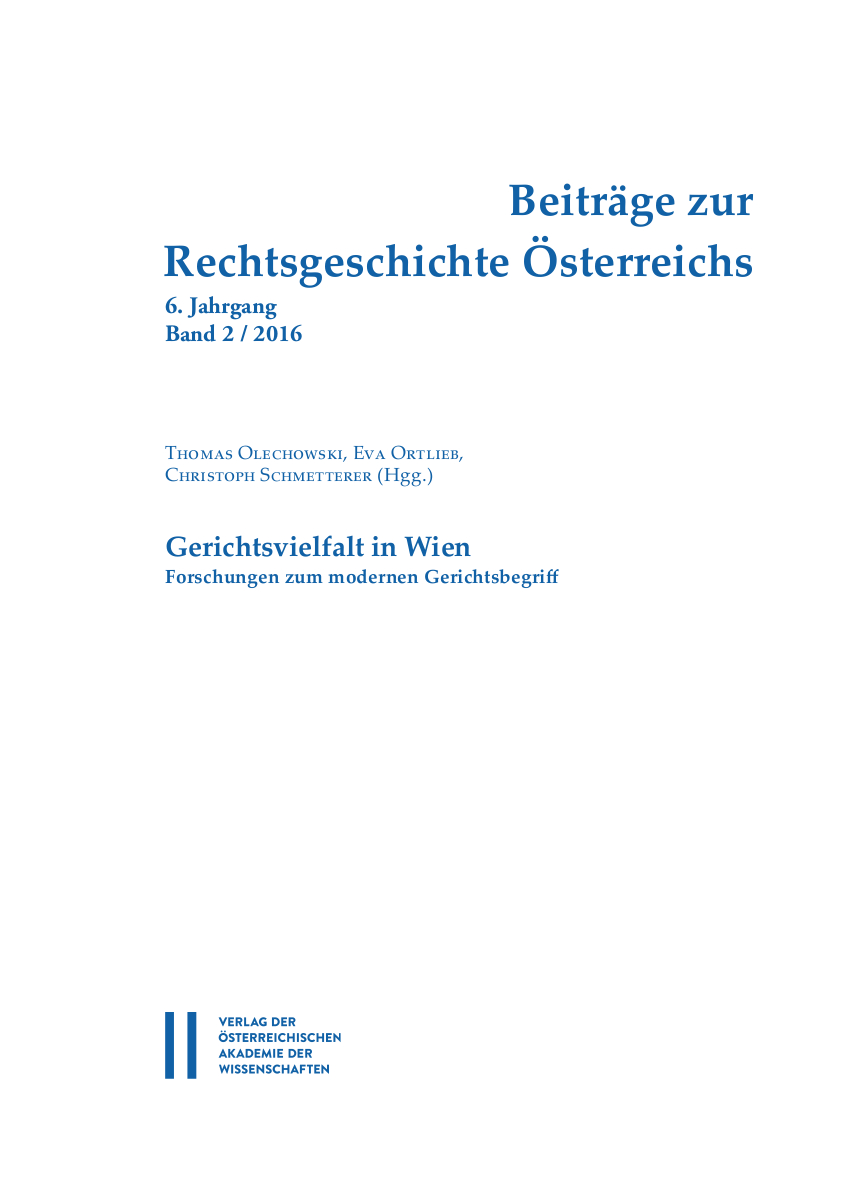
Beiträge zur Rechtsgeschichte Österreichs 2 / 2016, pp. 470-479, 2016/10/11
Gerichtsvielfalt in Wien
Forschungen zum modernen Gerichtsbegriff

The Chamber of Chartered Public Accountants and Tax Consultants was established in 1945 and issued its Regulations for Court of Honour and Disciplinary Proceedings, which contained substantial disciplinary provisions as well as procedural rules, in 1949. The substantial disciplinary provisions were for the first time regulated by state law in the Wirtschaftstreuhänder-Berufsordnung (l955), followed by the procedural rules in the Wirtschaftstreuhänderdisziplinarordnung (l962). A fundamental change took place in 1999 with the enactment of the Wirtschaftstreuhandberufsgesetz, which established type-based penal provisions and an enhanced liberalisation. With the introduction of the Administrative Courts on 1st January 2014, the Disciplinary High Council as a specialised appeals authority was abolished; appeals against first-instance decisions are now referred to the Administrative Court for the respective province.
Keywords: Austrian chamber of chartered public accountants and tax consultants chartered accountants - disciplinary law - professional misconduct - tax consultants